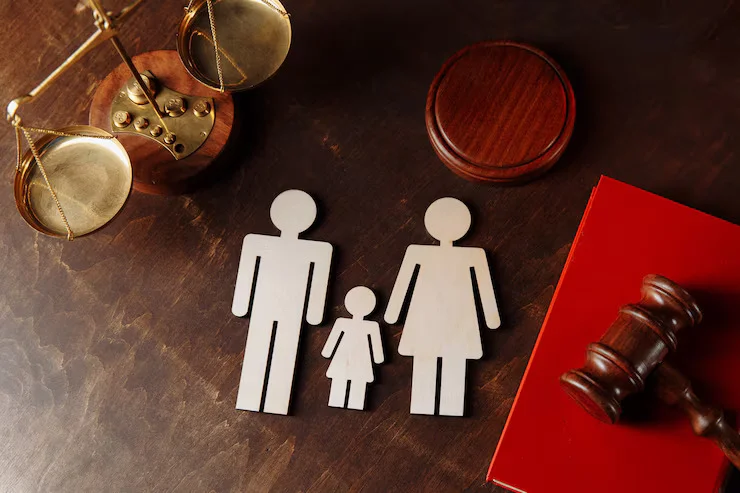In Massachusetts, a contested divorce means you’ll be going to court to resolve disputes that can’t be settled outside of the courtroom. This isn’t a quick or simple undertaking. Contested divorce trials are legally intense, emotionally charged, and time-consuming.
Divorce is never easy, but when you and your spouse can’t agree on critical issues like custody, alimony, or property division, the process becomes even more complicated. This article will walk you through every major step of a contested divorce trial in Massachusetts, from the initial filing through the final judgment.
You’ll learn what to expect during each phase of the process, what documents and evidence may be required, who will be involved (including judges, attorneys, and possibly a Guardian ad Litem), and how long everything typically takes. We’ll also explore the specific challenges posed by Worcester County’s court backlogs and explain why hiring a knowledgeable attorney can make a significant difference.
For a broader look at your divorce options, including negotiation and mediation strategies, visit our family law practice hub.

What Is a Contested Divorce Trial in Massachusetts?
A contested divorce trial in Massachusetts is a legal proceeding in which the court must resolve disputes that you and your spouse are unable to resolve yourself.
In Massachusetts, a divorce becomes contested when you and your spouse can’t agree on one or more significant issues, like child custody, division of marital assets, alimony, or child support. This is formally known as a 1B divorce, where the court must resolve unresolved disputes. This differs from a 1A uncontested divorce, where both parties agree on all terms and submit a joint petition.
If your case goes to trial, a Probate and Family Court judge (not a jury) will ultimately decide the outcome. This judge has the authority to rule on all aspects of the divorce based on the evidence, testimony, and legal arguments presented at trial.to review and approve the parenting plan. This means the plan must promote the child’s emotional development, stability, health, and safety.

How Does the Trial Process Begin?
The contested divorce process begins when one spouse files a Complaint for Divorce (1B).
This legal document outlines the basic facts of the marriage and identifies the areas of disagreement, such as custody or financial support. Once the complaint is filed, it must be served on the other spouse, known as the defendant.
The defendant has 20 days to respond with an Answer, which may also include a Counterclaim. This document lays out their side of the dispute.
Once both parties have filed their initial pleadings, the case moves into discovery. This is the process where each side exchanges important information and documents. In Massachusetts, this includes mandatory financial disclosures under Rule 401 and Rule 410. Discovery may also involve subpoenas, depositions, interrogatories, and appraisals.During this period, the court will typically schedule a Case Management Conference or Pretrial Hearing to ensure the case is moving forward.
What Happens at the Pretrial Conference?
The Pretrial Conference happens before the trial commences and is when both spouses explain how they will proceed during the trial, including who they’ll call as witnesses, and may also attempt to reconcile some of their differences.
This is an important step where both sides have the chance to:
- Submit pretrial memoranda outlining their case
- List proposed witnesses and exhibits
- Attempt to resolve some or all issues
The court strongly encourages settlement at this stage. Judges may offer guidance based on the facts presented or even recommend further mediation.
In high-conflict custody cases, the court may appoint a Guardian ad Litem (GAL) to investigate each household and make a report in the child’s best interest. In Worcester County, probation officers may be assigned to help mediate parenting disputes before a trial is scheduled.
If disputes remain unresolved, the court will set a trial date.
What Happens at a Contested Divorce Trial?
A contested divorce trial consists of a series of steps, including opening statements, presenting the cases (one at a time), presenting evidence, and then closing statements.
A contested divorce trial follows a structured legal format, much like any civil trial, though the stakes are often more personal.
Each side (through their attorneys) presents their arguments, evidence, and witnesses. Some of the more typical elements include:
- Opening statements by both parties
- The plaintiff presents their case
- The defendant presents their case
- Rebuttals and cross-examinations
- Closing statements
Evidence may include:
- Financial records (bank statements, tax returns, business valuations)
- Parenting evaluations or GAL reports
- Testimony from the spouses, family members, childcare providers, or experts
- Photographs, emails, or text messages relevant to parenting or property issues
Common contested topics:
- Legal and physical custody
- Parenting time and holiday schedules
- Division of assets and liabilities
- Spousal support (alimony)
The judge listens to the arguments, evaluates the evidence, and may ask follow-up questions to clarify key points. The trial can last from a single day to several days or even weeks, depending on the complexity of the case.
What Happens After the Trial?
After the trial, the judge usually makes a ruling or decides to reflect before making a ruling.
After all evidence and testimony have been presented, the judge may:
- Make a ruling from the bench (immediately)
- Take the matter under advisement and issue a decision in writing within several weeks
The resulting document is called the Judgment Nisi, which acts as a provisional order. After 90 days, if neither party files an appeal, the divorce becomes final with a Judgment Absolute.
Post-trial, either party may also:
- File a Motion to Reconsider if new evidence arises
- Appeal the decision if they believe the judge misapplied the law
- Request modifications based on changes in circumstance (Rule 412)
How Long Does a Contested Divorce Trial Take?
A contested divorce trial can take between 12 and 18 months to conclude.
The timeline for a contested divorce in Massachusetts varies depending on the circumstances of the case in question, but here’s a typical breakdown:
- Pretrial phase: 6–12 months, depending on how quickly both parties comply with discovery and court scheduling
- Trial length: 1–3 days in most cases, but high-conflict or high-asset divorces can last significantly longer
- Judgment issued: Within a few weeks to a few months
- Judgment Nisi to Absolute: 90 days
In Worcester Probate and Family Court, heavy caseloads and backlog issues can push the total time from initial filing to final divorce past 12–18 months.
To keep your case moving, work closely with your attorney, stay organized, and respond promptly to court requests.
Do You Need a Lawyer for a Contested Divorce Trial?
Yes, you need a lawyer for a contested divorce trial.
A contested divorce trial is more than an intensely emotional experience. It’s a complex legal procedure with long-term implications for your finances, parental rights, and future well-being. While you’re legally entitled to represent yourself in court, it’s highly recommended to work with an experienced divorce attorney to help you avoid common mistakes while also handling the case’s heavy lifting.
A skilled attorney can:
- Prepare and file the necessary motions and disclosures
- Guide you through discovery and subpoena requests
- Present evidence clearly and persuasively
- Cross-examine witnesses
- Negotiate settlements when possible
- Argue on your behalf in front of a judge
Without legal representation, you risk missing deadlines, making procedural errors, or entering into agreements that aren’t in your best interest.
Meet Michelle Murray, our experienced family law attorney who can help you prepare for trial and protect what matters most. Still have questions? Contact our team today to schedule a consultation and learn how we can help you navigate your Massachusetts divorce with confidence.

Michelle Murray has devoted her practice exclusively to family law matters, focusing her efforts on assisting clients through divorce, custody, property division, child support, spousal support, and visitation issues throughout Worcester County.
